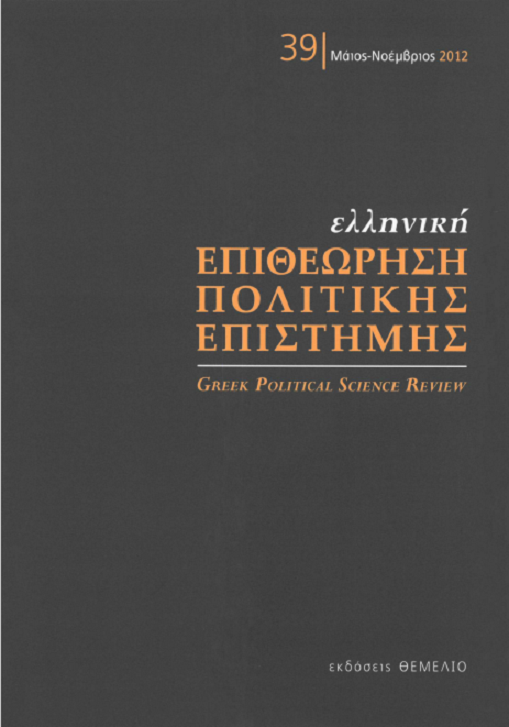Between collateral damage and "iron law"
Abstract
The article argues that the euro crisis has put European integration to a major test –more profound and more serious than ever before. Beyond the more immediate financial and economic effects, the crisis has inßicted collateral damage: unintended and unexpected consequences at both the national and European level, which could jeopardise not only the EU's ability to manage (and overcome) the current crisis but also its ability toaddress future internal and external challenges. The article examines four of these consequences: (1) the growing distrust between national capitals and national societies; (2) the widening "democratic gap" at both EU and national level; (3) the new balance of power and the "new German question"; and, finally, (4) the acceleration of Europe's global political and economic marginalisation.
Article Details
- How to Cite
-
Emmanouilidis, J. A. (2017). Between collateral damage and "iron law". Greek Political Science Review, 39, 106–126. https://doi.org/10.12681/hpsa.14548
- Section
- Special Section

This work is licensed under a Creative Commons Attribution-NonCommercial-ShareAlike 4.0 International License.
Authors who publish with this journal agree to the following terms:
Authors retain copyright and grant the journal right of first publication with the work simultaneously licensed under a Creative Commons Attribution licence that allows others to share the work with an acknowledgement of the work's authorship and initial publication in this journal.
Authors are able to enter into separate, additional contractual arrangements for the non-exclusive distribution of the journal's published version of the work (e.g. post it to an institutional repository or publish it in a book), with an acknowledgement of its initial publication in this journal.
Authors are permitted and encouraged to post their work online (preferably in institutional repositories or on their website) prior to and during the submission process, as it can lead to productive exchanges, as well as earlier and greater citation of published work (See The Effect of Open Access).



